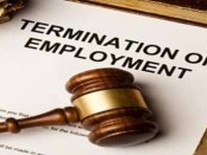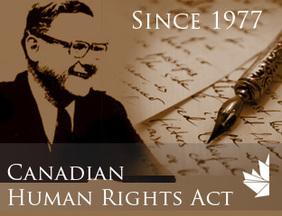Nothing functions to increase anxiety more than an interview. Whether this be a job interview, or one related to your job specifically, they function to increase stress levels. The Ontario Special Investigations Unit (SIU) interviews are no exception. It is helpful that many are conducted by trained investigators who, at one time, performed the job of those they are interviewing; albeit in a very different political climate.
Those with prior policing experience often have relevant knowledge and a professional attitude. They understand the profession and the many aspects involved in the job, along with the sensitivity that can be helpful in the most difficult cases.
From one SIU Director to the next, the public messaging that has been delivered has often been overly critical of police actions; the message has often been that officers act in a heavy-handed fashion, requiring oversight for true accountability. Officers are duty bound to cooperate, and unlike in any other criminal investigation, witnesses are compelled to a criminal interview. Regardless of the fact that the Charter Right to be free from self-incrimination seemingly does not apply to police officers in this context, there are limits.
Witness officers are compelled pursuant to Reg/267 of the Police Services Act to attend for an interview where the SIU has invoked their mandate, and to answer their questions. This does not, however, translate to officers being required to provide each and every piece of personal information requested by the SIU, absent any relevance to that actual mandate. Under the threat of “insubordination”, officers are being demanded to provide their Date of Birth (D.O.B.), without any legally justifiable reason for why such information is necessary. This is hardly transparent, given the SIU states they operate to foster “open, respectful communication in all directions to promote a common understanding”.[1]
The Toronto Police Chief has taken the lead, communicating that his officers will NOT provide D.O.B., given the identity of the officers is not in question; a position the SIU Director takes issue with. To summarize: there is no oversight for oversight; the police are ‘obliged’ to answer any question the SIU deems relevant, without any right to ask why; the SIU invokes its mandate at its own discretion, again without any reason justifying this decision; officers are being charged by the SIU at an alarming rate (only to be cleared by the Courts afterward), and an SIU investigation continues to take an unreasonable amount of time to be concluded. This is what we can officially call the ‘ugly’ portion of this system.
Unfortunately, there are also other experiences that function to increase the tarnished impression the SIU has left as a result of the many examples of officers whom have had to fight for their innocence unnecessarily in court. This serves to waste valuable time and resources, adding increased stress and anxiety within a profession that is already burdened by the weight of the badge.
It is time to work collaboratively with one another to ensure we are asking the right questions, and receiving the right answers. Comprehensive transparency depends on it.
[1] SIU Annual General Report 2014-15, http://www.siu.on.ca/pdfs/siu_ar_2014_15_ltr_final.pdf., p. 31.
Those with prior policing experience often have relevant knowledge and a professional attitude. They understand the profession and the many aspects involved in the job, along with the sensitivity that can be helpful in the most difficult cases.
From one SIU Director to the next, the public messaging that has been delivered has often been overly critical of police actions; the message has often been that officers act in a heavy-handed fashion, requiring oversight for true accountability. Officers are duty bound to cooperate, and unlike in any other criminal investigation, witnesses are compelled to a criminal interview. Regardless of the fact that the Charter Right to be free from self-incrimination seemingly does not apply to police officers in this context, there are limits.
Witness officers are compelled pursuant to Reg/267 of the Police Services Act to attend for an interview where the SIU has invoked their mandate, and to answer their questions. This does not, however, translate to officers being required to provide each and every piece of personal information requested by the SIU, absent any relevance to that actual mandate. Under the threat of “insubordination”, officers are being demanded to provide their Date of Birth (D.O.B.), without any legally justifiable reason for why such information is necessary. This is hardly transparent, given the SIU states they operate to foster “open, respectful communication in all directions to promote a common understanding”.[1]
The Toronto Police Chief has taken the lead, communicating that his officers will NOT provide D.O.B., given the identity of the officers is not in question; a position the SIU Director takes issue with. To summarize: there is no oversight for oversight; the police are ‘obliged’ to answer any question the SIU deems relevant, without any right to ask why; the SIU invokes its mandate at its own discretion, again without any reason justifying this decision; officers are being charged by the SIU at an alarming rate (only to be cleared by the Courts afterward), and an SIU investigation continues to take an unreasonable amount of time to be concluded. This is what we can officially call the ‘ugly’ portion of this system.
Unfortunately, there are also other experiences that function to increase the tarnished impression the SIU has left as a result of the many examples of officers whom have had to fight for their innocence unnecessarily in court. This serves to waste valuable time and resources, adding increased stress and anxiety within a profession that is already burdened by the weight of the badge.
It is time to work collaboratively with one another to ensure we are asking the right questions, and receiving the right answers. Comprehensive transparency depends on it.
[1] SIU Annual General Report 2014-15, http://www.siu.on.ca/pdfs/siu_ar_2014_15_ltr_final.pdf., p. 31.

 RSS Feed
RSS Feed





